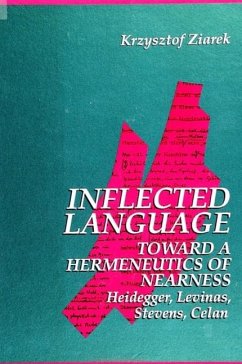Nicht lieferbar

Negative Hermeneutics and the Question of Practice
How do words and images function hermeneutically? How does hermeneutic practice work? Answering these questions and more, Nicholas Davey develops the hermeneutical foundations of creative practice. In doing so, he not only uncovers the significance of philosophical hermeneutics for the arts and the humanities, but defends the humanities as a whole from the current scepticism inspired by deconstruction and post-structuralism. Taking Gadamer's language ontology as its cue, this pioneering volume not only addresses certain weaknesses that Davey observes in Gadamer's thought but further takes Gada...
How do words and images function hermeneutically? How does hermeneutic practice work? Answering these questions and more, Nicholas Davey develops the hermeneutical foundations of creative practice. In doing so, he not only uncovers the significance of philosophical hermeneutics for the arts and the humanities, but defends the humanities as a whole from the current scepticism inspired by deconstruction and post-structuralism. Taking Gadamer's language ontology as its cue, this pioneering volume not only addresses certain weaknesses that Davey observes in Gadamer's thought but further takes Gadamerian thinking beyond Gadamer himself. In particular, Davey investigates the productive value of negativity that is central to hermeneutics and to wider spheres of creative learning. Advocating a renewed confidence in hermeneutics and the humanities, Negative Hermeneutics and the Question of Practice reveals how hermeneutical thinking provides a map of the dynamics within creative practice, eliminating the need for an externally imposed 'theory' of the arts.













